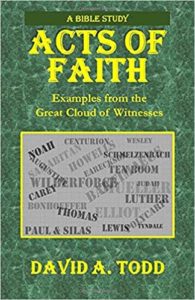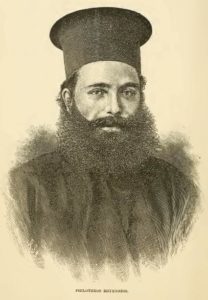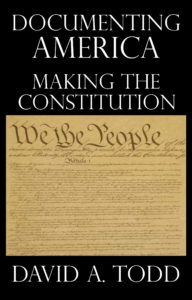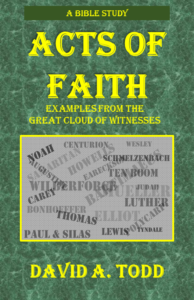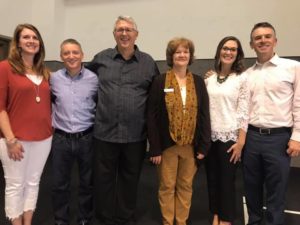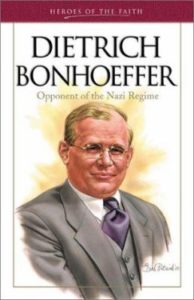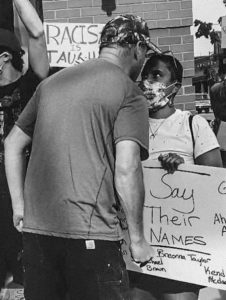
And, after a fair number of posts about racism, talking about the difference between racism and racist acts, about the existence of latent racism, I’m finally at the point of discussing racism itself. If you remember, in prior posts I have differentiated between racist acts—things done or said in the open—and racism—the condition of the heart that gives rise to racist acts.
This may be splitting hairs. Others may not see the difference. I do, however, because I think the way to combat them, to eradicate them, is different. Racist acts can be legislated against. When implementation of laws fails, steps can be taken to improve things. That’s not necessarily easy, but a path forward exists.
But racism, the condition of a person’s heart that may be held inside for long periods and only infrequently give rise to racist acts. How do you combat that? How do you change a person from the inside out? How do you convince them 1) that those with a different skin color are human; 2) they have equal natural rights endowed on them by God; 3) that your inner condition of racism will someday come out with a (or many) racist act(s); and 4) they can change if only they want to.
I’m sure someone will respond that I’m crazy. People can’t change, and they sure can’t change on their own. I would reply that’s true. My own belief is that only God can change the heart. Many people don’t believe in God, or don’t think of Him as a personal God who interacts with people. Would those people say that a racist can’t change? I don’t think so, at least not all people who live without a belief in a personal God believe that.
That brings us to a question of what our role is in combating racism. If God is the one who actually changes the heart, does that leave me out of the equation, or do I have a role to play? If so, what is that role?
I’ve thought a lot about this, and believe my role is to move people to a place where God can change them. How do I do this? As I said briefly in a prior post, by example, education, and persuasion. I may not be qualified in each of those. I may have one out of those I can do well. Maybe I can educate someone as to equality and the lack of difference in the person simply because of skin color. Maybe, after that education, I can persuade them that they can and should change. Their heart won’t change because of my words, but maybe they will think about it, move a little closer to God, and be in a place where he can change their heart.
What about change by example? I hope, hope, hope I was a good example to my children of a person who is not a racist. I hope that is continuing with my grandchildren. But, I have many more people I can persuade than just those. With the corona virus self-quarantine/reduced activities, chances for in-person interaction are greatly reduced, but they are still there. Included in those might be a few opportunities to model acceptance of people of all races.
Social media gives a chance for interaction, however. In fact, right now that’s perhaps the main chance. I have lots of chances to model full acceptance of all races as equal, as endowed by God with the same rights I am endowed with. To my way of thinking, the main contribution I can make to any discussion is calm reasoning. Someone on either side of the racial divide commits a racist act on social media (which, of course, is limited to speech). I can pour water or gasoline on the situation. I can also ignore it, which I often do. But when I sense someone’s posts which seem benign enough are actually a mild racist act, I try to counter them with calm reasoning.
I’ve done that a couple of times in the last three or four days. It’s a first attempt with each of the individuals. I don’t know that my words did any good. But it’s a first attempt. I’ll make another attempt and then another. At some point I’ll make my calm reasoning a little stronger. Maybe they will be nudged a little closer to the One who can work a change in them. That’s my goal. I think that I’m happy with my efforts, though thus far they are too few. We’ll see how this works going forward.
